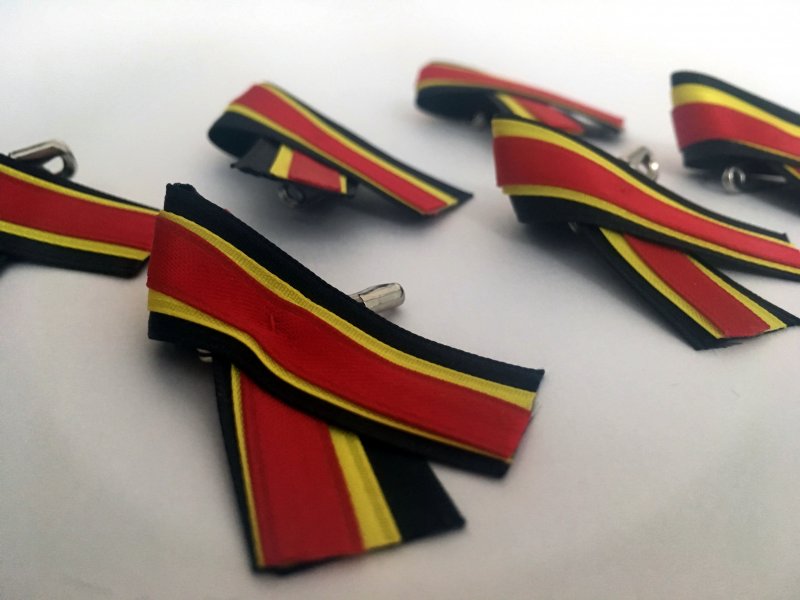‘A year ago, the government promised to accept the Infected Blood Inquiry’s
recommendations, pay compensation and deliver justice. Since then, victims have been
subject to more deceit, spin, delays and a total disregard of the Inquiry’s
recommendations, continuing the much-criticised, institutional defensiveness. This has
inflicted on the Infected and affected community a new magnitude of psychological
injury. This betrayal must be corrected and comprehensive psychological support
provided if any trust is to be rescued.’
Joseph Peaty, HBDCA Trustee.
One year has passed since the publication of the Final Report of the Infected Blood
Inquiry. For the community it represents – those infected and affected – the past twelve
months have brought fresh waves of uncertainty, grief, and frustration.
The Haemophilia and Bleeding Disorders Counselling Association (HBDCA) has been at
the side of this community throughout the Inquiry and beyond, championing the need
for psychological and psychosocial support to be embedded as a core component of
any meaningful compensation process.
In that time, HBDCA has supported hundreds of individuals through a programme of
expert psychotherapy, informed peer support, and dedicated events known as Infected
Blood Days. These in-person gatherings have proven to be vital – offering a safe space
to process trauma, and fostering a deep sense of solidarity reminiscent of the Inquiry
itself.
One of Sir Brian Langstaff’s key recommendations was to support ongoing in-person
connection. This remains a powerful source of psychosocial strength, particularly for
those who continue to live in secrecy or isolation due to stigma or trauma.
Alongside frontline support, HBDCA has contributed expert insight to NHS England
through the IBPS Stakeholder Group, helping shape the emerging framework of
psychological services. We advocated strongly for in-person inductions for IBPS
psychologists to ensure genuine understanding of the lived experiences of this
community – something that cannot be achieved remotely or through theory alone.
Without that understanding, there is a real risk of disengagement by those who most
need help. HBDCA continues to share knowledge with IBPS professionals who reach
out, committed to improving care standards through collaboration.
Over the past year, we have heard repeatedly from individuals burdened by extreme
psychological fatigue, anxiety, and despair. On 20 May 2024, many believed justice was within reach.
By the following day, it became painfully clear that the struggle was far
from over. Some of the most vulnerable – including elderly parents and those at the end
of the compensation queue – now fear they may not live to see financial recognition.
In this fragile landscape, HBDCA has been providing critical psychological support,
helping individuals navigate renewed trauma and a deepening mistrust in government
processes.
We remain deeply concerned that two principles – choice and trust – are being eroded in
the current approach to psychological provision. Many individuals have established
long-standing relationships with therapists they trust. Forcing them to disengage from
these trusted sources in favour of an unfamiliar state-funded alternative strips away vital
autonomy. Choice must remain with the individual and should be underpinned by
accessible, fair government funding.
Furthermore, the current delivery model – centred around haemophilia centres –
presents a barrier to access for many. For those who lost loved ones at these very
centres, the location itself may trigger retraumatisation. Psychological support must be
truly inclusive, and available in settings where individuals feel safe.
Several months ago, HBDCA formally appealed to both IBCA and the Paymaster General
for funding to meet rising demand. IBCA recently responded, recognising our
contribution but confirming it lacks the authority to provide financial support. The
Cabinet Office has not responded at all. A meeting we requested to raise these concerns
was held without us and only discovered after the fact.
HBDCA is a small charity with a dedicated team delivering trusted, trauma-informed
support to one of the most affected and under-represented communities in the UK. Our
work continues without guaranteed funding, and at great cost to the mental health of
those we serve.
We now call on government and public bodies to:
- Acknowledge the psychological harm caused by ongoing delays and
miscommunication; - Recognise the work of HBDCA and our qualified psychotherapists;
- Provide urgent financial support so we can continue to meet the needs of this
community; - Uphold the principles of trust, choice, and accessibility in the provision of
psychological care.
Our hope is that by this time next year, every member of the Infected Blood community
will have received the recognition, compensation, and justice they have waited so long
for. While no financial award can undo the harm done, timely and fair recompense may
finally restore some measure of peace, dignity, and security to those who have lost so
much.
Christina Burgess
Director, HBDCA On behalf of the HBDCA Trustees
Nina Beer, Joseph Peaty, Cynthia Creavalle, Maryam Samina, Dr Kate Khair, Farid
Gasanov
HBDCA Ambassadors
Ros Cooper
Senior Associates
Lisa Fowler, Marion MacGillivray, Anila Babla, Angela Johnson
Associates
Alicia Fowkes, Eve Jones, Jennifer Wainman, Helen O’Mahony, Dr Hannah Dunford

